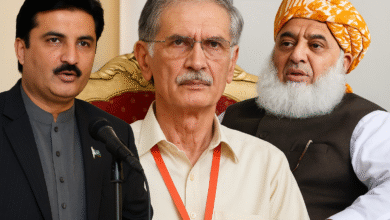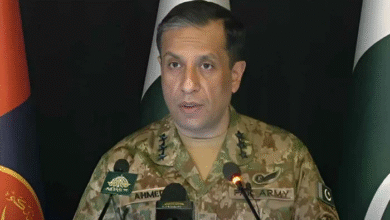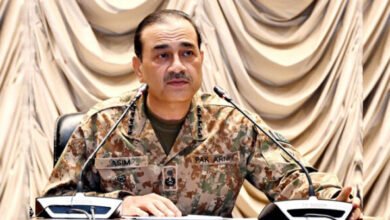When Leaders Fail, Who Pays the Price?

By Ghulam Haider Shaikh
The recent remarks by Chief Minister Ali Amin Gandapur, suggesting that public representatives who failed to build even a single college in their constituencies deserve to be met with shoes, have sparked both outrage and reflection. While the statement carries an undeniable sting, it also exposes a deeper frustration among the public over decades of unfulfilled promises and hollow rhetoric.
For too long, Pakistan’s political culture has tolerated mediocrity and rewarded incompetence. Constituencies that have repeatedly voted for the same representatives see little to no progress in education, health, or infrastructure. Colleges, which serve as gateways to opportunity and social mobility, remain absent from many rural and semi-urban areas. This deprivation is not merely a policy failure; it is a betrayal of the aspirations of millions of young Pakistanis.
Chief Minister Gandapur’s blunt words, though unrefined, touch upon a truth that citizens experience daily. Voters are often reduced to mere spectators after elections, watching as promises evaporate and development funds disappear into murky channels. The idea of holding elected officials accountable—not just at the ballot box but through consistent civic pressure—is essential for democracy to thrive.
Yet accountability must be constructive, not vengeful. Resorting to symbolic violence, even rhetorically, risks normalizing anger without offering solutions. The real challenge lies in institutionalizing mechanisms that track performance, audit development spending, and enforce penalties for dereliction of duty. Publicly accessible scorecards for lawmakers, independent watchdogs, and a stronger local government system can make it harder for non-performing representatives to escape scrutiny.
Education deserves particular attention. Pakistan’s youth bulge is both a potential asset and a looming crisis. Without adequate colleges, vocational training centers, and technical institutes, millions will remain trapped in cycles of poverty and unemployment. Provinces like Khyber Pakhtunkhwa must invest in not just building educational infrastructure but also ensuring its quality and accessibility for marginalized communities.
Chief Minister Gandapur himself now carries the weight of his statement. His government will be judged not by words but by actions. Can KP’s administration prioritize education in its development agenda? Will the province see a surge in new colleges, better teacher training, and curricula that equip students for the modern economy? Or will this, too, become another episode of fiery rhetoric with little follow-through?
The people of Pakistan deserve leaders who view education not as a favor to their constituencies but as a fundamental right and a national necessity. Anything less is unacceptable. Accountability must indeed begin—but it should start with those in power today.





